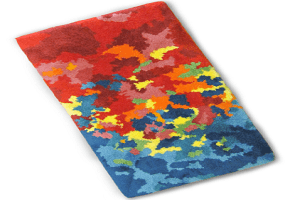
While understanding the different types of alcoholism is crucial, effective treatment is equally important for navigating this substance use disorder. An alcoholic is someone who has developed an alcohol dependence and is experiencing physical and psychological cravings, tolerance, and withdrawal symptoms when trying to cut down or quit. Researchers foundthat they have the highest rates of employment among alcoholics, with 68% working full-time and an average family income of nearly $50,000 a year. Only8.7%of young adult alcohol dependents have ever sought treatment for their drinking problem. If they do choose to seek help,they tend to prefer 12-step programsover specialty treatment clinics or private professional practices.
Functional Alcoholics
Chronic severe alcoholics often smoke and may also suffer 5 types of alcoholics from cocaine, opioid, and/or marijuana dependence in addition to alcohol addiction. This subtype of alcoholics is the most likely to seek treatment and the most heavily represented type of alcoholic in a treatment program. About two-thirds of chronic severe alcoholics get help for their drinking.
How can I support a loved one struggling with alcohol addiction?

Antisocial personality disorder commonly co-occurs with alcohol abuse, as alcohol can lower social inhibitions and anxiety, and make a person feel more relaxed. Drinking may then be used as a method of self-medicating the personality disorder symptoms. This subtype of alcoholics is generally in their mid-20s and started drinking young.
Alcohol Withdrawal Symptoms
Individuals who drink chronically are shown to exhibit far more aggressive behaviours than other types of alcoholics, meaning that they often engage in antisocial behaviours and/or crime. In England alone, it is estimated that there are around 600,000 individuals currently struggling with alcohol dependence, though only a small percentage of these individuals are seeking help for their condition (1). This subtype includes 19.5% of those who struggle with alcohol use but appear to be functioning.
Rather, by knowing which alcoholic personality type you or a loved are acts as a guide to finding the best treatment and prevention methods. About half of those in this group have an anti-social personality disorder and are more likely to experience a co-occuring mental health condition such as depression, bipolar disorder, dysthymia or anxiety. They’re also extremely likely to have another addiction to cigarettes, marijuana, opioids or cocaine. You may have heard the term functional alcoholics, someone who can hold down a stable job and keep relationships with their family while exhibiting signs of alcoholism.
Get Help With Alcohol Addiction
This group has one https://ecosoberhouse.com/article/survive-boozy-bbq/ of the lowest education levels of any subtype and also has the lowest employment rate. This group drinks more frequently than any other, although their total alcohol intake is less than the young antisocial subtype. Two-thirds of this subtype have sought help for their alcoholism at some point, making them by far the most likely to have done so.
- This group has one of the lowest education levels of any subtype and also has the lowest employment rate.
- In the UK, the legal drinking age is 18, meaning that individuals in this category often fall into this age group or are younger.
- The chronic severe subtype represents individuals with the most severe and debilitating form of alcoholism.
- If you find that the above descriptions resemble you or a loved one, you’re not alone.

Fewer than 20% of this subgroup seek help, and when they do, most turn to a 12-step program or private healthcare professional. Through our referral service, we refer thousands of individuals struggling with addiction to the most suitable and effective treatments for them. To learn more about alcoholism, addiction, and rehabilitation, please do not hesitate to get in contact with Rehab 4 Alcoholism today. Within a group such as this, individuals can talk about the issues they faced while addicted in a judgement-free environment around others who may have similar experiences.
How to Know Which Alcoholic Personality Type You Are
- If you or someone you know is struggling with alcoholism, it’s important to seek professional help.
- This type of alcoholic has a family history of alcoholism and may have started drinking at an early age.
- Young adults tend to drink less often than older alcoholics, but they binge drink more.
- Seeking treatment for both the addiction and the mental health disorder is crucial for long-term recovery.
- Nearly one-third of those in this group have families with a history of alcoholism.
The characteristics of alcoholics in the young adult subtype include drinking less than other types of alcoholics, but when they do use, they engage in binge drinking. It’s less likely for them to have co-occurring mental health conditions or family histories of alcoholism. As a result, many within this group don’t seek treatment for their substance use. By recognizing the different types of alcoholics and tailoring treatment and support to meet their specific needs, we can improve outcomes and provide individuals with the tools they need to overcome alcohol use disorder.

Types of Alcoholics According to the NIAAA

If you answered “yes” to any of these questions it could indicate that you have a drinking problem. Talk to your doctor or an addiction treatment professional to get an official diagnosis of AUD. Even if you don’t yet have AUD, problematic drinking and alcohol abuse should be addressed before it progresses to AUD. The functional subtype consists of middle-aged adults who are usually well-educated and have steady jobs. Around one-third have a history of alcohol abuse within their families, spanning multiple generations.




 Round Rugs
Round Rugs  Wool Rugs
Wool Rugs  Vintage Rugs
Vintage Rugs 


 Carpet Tiles
Carpet Tiles  Carpet
Carpet 
 Embossed Rug
Embossed Rug  Plain Rug
Plain Rug 
 2.5'*4'
2.5'*4'  2'*3'
2'*3'  3'*5'
3'*5'  5*7.5
5*7.5 













 Artificial Grass
Artificial Grass  Mats
Mats 
 Soil
Soil  Fertilizer
Fertilizer  Pesticides
Pesticides